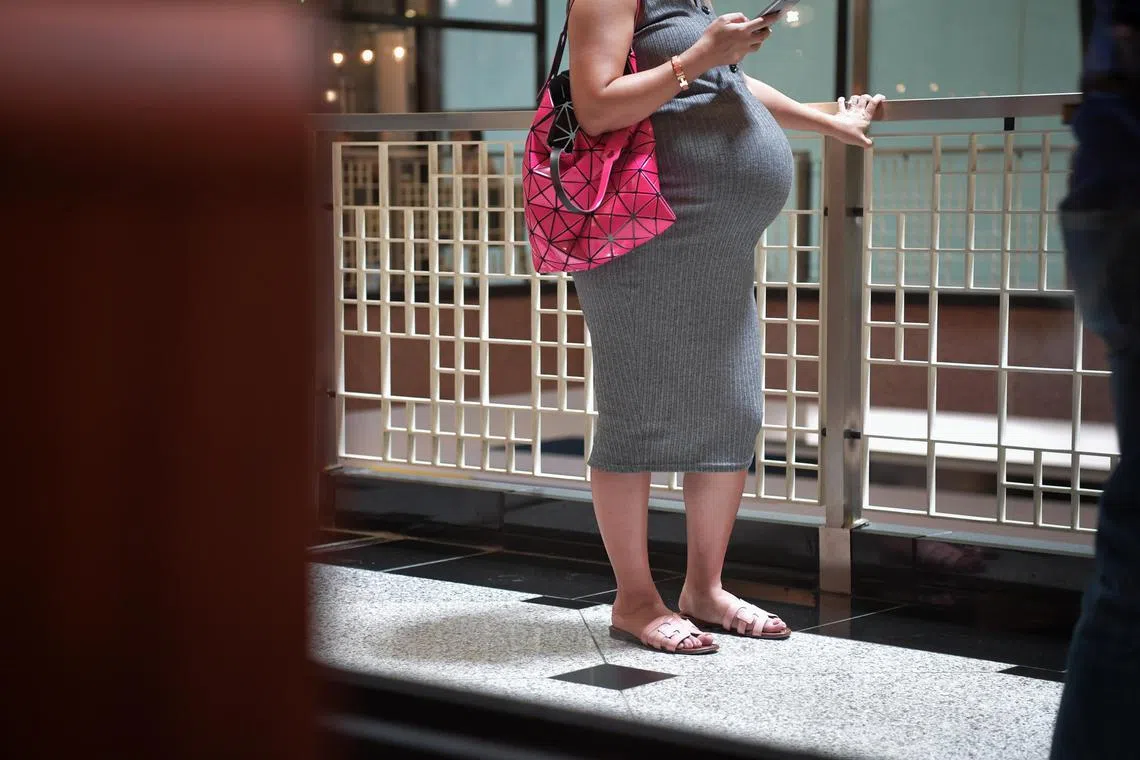Rise in pregnancy-associated breast cancer as more women in Singapore delay having kids
Sign up now: Get ST's newsletters delivered to your inbox

Pregnancy-associated breast cancer occurs in about one in every 3,000 pregnancies.
PHOTO: ST FILE
Follow topic:
SINGAPORE - There is an increasing incidence of pregnancy-associated breast cancer, as more women choose to delay child-bearing until their 30s and 40s, said Dr Margaret Lee, a consultant with the radiology department at Sengkang General Hospital (SKH).
Pregnancy-associated breast cancer – defined as breast cancer diagnosed during pregnancy or in the first post-partum year – occurs in about one in every 3,000 pregnancies. The risk of cancer rises with age.
“Most breast cancers are detected in the first six months after delivery, and the average age of these patients is 32 to 34 years old,” said Dr Lee, who treats the condition at SKH.
Most of the patients with pregnancy-associated breast cancer do not have a family history of breast cancer, she added.
In 2020, KK Women’s and Children’s Hospital reported that pregnancy-associated breast cancer made up about 7 per cent of breast cancers in women under 45 here.
There has been a jump in the number of women here conceiving in their 40s in the past three decades. In 2020, there were nine births for every 1,000 women aged between 40 and 44, compared with 4.5 in 1985, according to the Singapore Department of Statistics.
Most patients report a painless lump in the breast or armpit, or breast skin thickening, said Dr Lee, adding that patients may report a cough or back pain in the later stages when the cancer has spread to the lungs or bones.
Lumps that may be felt by the mother may also be confused with mastitis – an inflammation of the breast tissue – and engorgement.
“Breast lumps due to mastitis or engorgement should not persist for more than two weeks. If the lump persists, it is important to seek assessment and treatment early,” Dr Lee said.
However, the diagnosis of pregnancy-associated breast cancer may be delayed, said the radiologist.
This is because the mother may feel unwell during pregnancy due to having to cope with pregnancy symptoms, while also preparing for birth as well as juggling family and work responsibilities.
And after giving birth, normal hormonal changes among breastfeeding mothers may result in increased volume and firmness, making lumps more difficult to detect, said Dr Lee.
“While the majority of the patients with a detected breast lump during pregnancy and lactation will have findings related to benign breast disease, it is important to seek medical attention early and do not ignore the breast symptoms as pregnancy-associated breast cancer tends to be more aggressive.”
Many mothers with breast cancer choose to undergo treatment while pregnant and have gone on to have successful deliveries, she assured, noting that a team of specialists, including obstetricians, breast surgeons and oncologists, will oversee the care of the pregnant mother and her baby.
Dr Lee advised women to maintain a healthy diet before and during pregnancy to reduce the risk of breast cancer.
“The most important step is doing regular monthly breast self-examinations and to seek medical attention early if an abnormality is detected,” she added.

